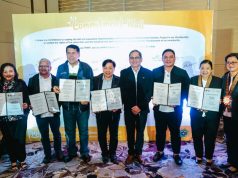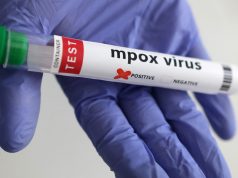Having time in their hands and in tune with the news and developments, the public has been vocal on raising concerns about the government’s COVID-19 response efforts since the imposition of the enhanced community quarantine on Luzon on March 17.
When President Rodrigo Duterte virtually locked down the main island of Luzon where the economic capital of Metro Manila is and banned public transportation, workers in essential services lost their mode of transportation. This prompted calls for the government to provide them with alternative means to get to their workplaces.
Vice President Leni Robredo responded to the needs of health workers and provided free rides to hospitals around the metro.
The Inter-Agency Task Force for the Management of Emerging Infectious Diseases, tasked to lead the country’s fight against COVID-19 then rolled out its own effort to provide free transportation for frontliners.
Speaking up on the citizens’ needs can make a difference.
“Salamat, mga kritikong maingay! May nagagawa ang pag-iingay natin!,” social media user Acee Vitangcol said on March 17.
He listed down several issues where public dissent has led to adjustments of government measures and response, besides the point-to-point transportation for health care workers. These include:
- Programs for displaced workers under the Department of Labor and Employment’s TUPAD or Tulong Panghanapbuhay sa Ating Disadvantaged/Displaced Workers – It is “a community-based package of assistance that provides emergency employment for displaced workers, underemployed and seasonal workers, for a minimum period of 10 days, but not to exceed a maximum of 30 days, depending on the nature of work to be performed.”
- Ease of entry and exit of cargo of basic good on areas under lockdown
- Social amelioration package for the marginalized community
- Return of GrabFood/Foodpanda/LalaFood deliveries
He also quoted the IATF-IED spokesperson and Cabinet Secretary Karlo Nograles as saying that the government is adjusting depending on what it is hearing.
“Mag-ingay para sa bayan!” Vitangcol wrote.
Other issues addressed
P500 daily allowance for health volunteers
Last week, the Department of Health drew flak after it called for volunteer healthcare personnel who would attend to COVID-19 patients and suspected cases, offering them P500 daily compensation.
Medical practitioners decried the small amount, while other critics said volunteers deserve more since they would be risking their lives in the line of duty.
READ: DOH is offering a P500 daily allowance for ‘volunteer’ health workers and people are outraged
Online users called the DOH out for this and the next day on March 28, Health Undersecretary Rosario Vergeire apologized and explained that the department understands the public’s concern.
She said that the DOH only based the amount on the rate it gave to volunteer workers in the previous outbreak responses.
Vergeire said the DOH is already working on raising the compensation for health workers.
“We apologize if many are unimpressed with the P500 daily allowance we will be providing to healthcare workers,” Vergeire said.
Probe into Vico Sotto and Leni Robredo’s efforts
Two other government agencies earned public denouncement last week for trying to launch an investigation against Pasig City Mayor Vico Sotto and Vice President Robredo.
The National Bureau of Investigation summoned Sotto for a possible violation of Bayan to Heal as One Act or Republic Act 11469, when he temporarily allowed tricycle drivers to operate in his city despite the government’s public transportation ban.
Sotto challenges the summons, saying he permitted the tricycle operation prior to the passage of the law on March 24. He had since ordered to stop it after Malacañang didn’t allow the move.
The NBI’s attempt against Sotto drew ire from the public who questioned why Sen. Koko Pimentel was not being investigated instead. Pimentel after all breached quarantine protocols by entering a private hospital and going shopping without disclosing he could be a suspected COVID-19 case.
Pimentel apologized for his actions but he was not reprimanded by the Senate or the national government.
The Department of Justice earlier said it will not yet probe Pimentel until a formal complaint is filed.
Justice Secretary Menardo Guevarra said the department will observe “compassion” during these difficult times.
“As I have said before, during abnormal times like these, when people are prone to commit mistakes or violations of the law, the DOJ will temper the rigor of the law with human compassion,” Guevarra said.
This remark was criticized for allegedly being selective.
READ: Is compassion for everyone? DOJ asked over inaction on Pimentel’s protocol breach
Following the public’s call to investigate Pimentel, the NBI later said that it will also invite the senator to its office once he is cleared from the coronavirus.
The Presidential Anti-Corruption Commission was likewise condemned for supposedly saying the NBI would launch a probe against Robredo.
One of the anti-corrupt body’s commissioners, Manuelito Luna, said that Robredo’s initiatives such as free shuttle services and dorms for health workers compete with and were “calculated to undermine” efforts of the executive branch.
Another PACC commissioner Greco Belgica, however, denied that the position was of the whole agency and insisted that what Luna said was his own personal opinion. Beligica added that the PACC supports Robredo’s actions.
Mass testing
Another movement championed by the public’s social media activity was the call for mass testing.
Using the hashtag #MassTestingNOW, Filipinos tried to pressure the government to estimate more closely the actual number of COVID-19 cases in the country so they can be isolated for treatment.
The World Health Organization earlier said mass testing is the best way to slow down the pandemic.
“All countries should be able to test all suspected cases, they cannot fight this pandemic blindfolded,” WHO Director General Tedros Adhanom Ghebreyesus said mid-March.
The Department of Health said, however, that the country could not handle COVID-19 mass testing yet due to the limited supply of testing kits and laboratories capable of running tests.
On Thursday evening, Presidential Peace Adviser Carlito Galvez Jr., the chief implementer of the national action plan against COVID-19, said that persons under investigation (PUI) and under monitoring (PUM) would be tested once more laboratories are accredited by the health department.
“We are also determined to fast track the accreditation of subnational laboratories so we can start the massive testing of PUIs and PUMs,” Galvez said.
“We expect that by April 14, we shall be able start massive testing. This will allow us to identify the COVID-19 carriers, isolate and treat them,” he added.
The news delighted advocates who have been calling for mass testing since the surge of the COVID-19 cases in the country including Sen. Risa Hontiveros.
“Finally, a response to our urgent call for #MassTestingNowPH,” she tweeted.
Some LGUs listened
Local government leaders have also been hearing out public sentiments’ online in governing amid the COVID-19 outbreak.
Sotto recently launched mobile wet market called “Mobile Palengke” after a news outlet reported photos of residents who are not practicing social distancing in a public wet market in Barangay Rosario Pasig City.
On Wednesday, some residents of Quezon City also reportedly demanded for food and financial aid causing a commotion in an area.
Residents were finally given food and the report said that residents believe it is a result of their protest, according to a report.
“Ngayon lang po, kung hindi kami nag-rally kahapon sa labas, hindi kami nabigyan ng pansin,” said Clara Vargas, a San Roque resident, was quoted by GMA News as saying.
Online users then stressed the importance of public opinion, dissent and speaking up to incite change.
“pAaNo tAyO uUnLaD kUnG rEkLaMo kAyO nG rEkLaMo” dahil sa pagrereklamo, mas lalo nang gumagalaw ang gobyerno ngayon. MASS TESTING BY APRIL 14!!!! NAAKSYUNAN NARIN YUNG NANGYARI SA MGA TAO SA SITIO SAN ROQUE!!! AND MANY MORE REPORTED IMPROVEMENTS!!!
— aériol (@abbyfrgt) April 3, 2020
A Facebook page called “Reklamador” dedicated to public’s complaints likewise counted the benefits of speaking out.
Dissent as citizens’ involvement in national affairs
A February 2014 opinion blog of political junkie, Benjamin Morris, at the Huffington Post titled “Why Dissent is Important” detailed its significance.
He cited public dissent dating back in the 1914 when Nellie McClung and other suffragist held protests in Winnipeg that paved way for Canadian women’s right to vote.
“Without dissent we would not be where we are right now in our home country,” he wrote.
Meanwhile, a recent podcast episode of Brendan O’Neill’s Spiked also said how dissent plays a significant role in the coronavirus.
“In this lockdown, dissent is a moral duty,” O’Neill titled the episode with journalist Peter Hitchens as guest.
Last year, Duterte said he respects and welcomes Filipinos’ criticisms against his policies, saying everyone has the right to do it.
“Wala naman kung dissent lang…those are just expression. I need more overt acts,” Duterte said in February last year, referring to chants to oust him during rallies, and that rebellion is another matter.
The statement was made even as the president has tried to silence his critics from the political opposition, most notably in having Sen. Leila de Lima jailed Sen. Antonio Trillanes IV and Vice President Robredo face charges.
Presidential spokesperson Salvador Panelo also earlier said he sees nothing wrong with students joining rallies and protest actions.
On Wednesday, calls to oust Duterte, led by Filipino online users became one of the top trending topics on Twitter worldwide after Duterte threatened to shoot dead violators of the quarantine.










